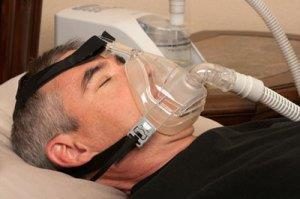
Breastfeeding for Healthy Airways and Better Breathing
The past 30 years have seen a revolution in attitudes to breastfeeding. Gone are the days when infant formula was considered superior to breast milk because it produced babies who could be plotted in the upper percentile sectors on those cute coloured growth charts. Today we’ve come to understand that bigger, bouncier babies doesn’t equate to healthier babies. We also know that overweight babies lead to overweight adults and all the associated health problems that come with increased body weight. Along that journey we’ve discovered that breast milk is the ideal nutrition for babies as it contains perfect levels of protein, fat, cholesterol and other nutrients, and comes with a host of advantages such as:
- More easily digested than infant formula
- Strengthens immunity and lowers the rate of viral and bacterial infections in infancy
- Lower risk of asthma and allergies
- Fewer ear infections
- Less respiratory illness
- Less diarrhoea
- Fewer hospital admissions
- Less nappy rash and thrust
Breastfeeding also lowers the risk of that fatal malady that puts fear in the hearts of every new parent – SIDS. However not only does breastfeeding improve the health during the first year of life, many benefits persist until adulthood, such as:
- Higher IQ scores
- Less overweight and obesity, and diseases associated with increased body weights
- Less Type 1 diabetes
So, you would think that with such an exemplary record, governments would promote breastfeeding for its benefits to its constituents and the national purse, right? Wrong. Earlier this month readers of the Sydney Morning Herald were greeted with this headline “US stuns world health community by opposing breastfeeding.” 1
In short, the US threatened to “unleash punishing trade measures and withdraw crucial military aid” to Ecuador if it promoted a UN resolution to (wait for it…) encourage breast-feeding. Fortunately, Russia did not acquiesce (as did most of the smaller nations) and the resolution to promote breastfeeding was eventually passed. That the health benefits of breast-feeding are widely known did not deter the Trump administration of working to protect the huge infant formula industry and working against this UN resolution.
It is indeed very sobering to be confronted with the reality that government policy is often driven by the vested relationships with and desires of prominent industries rather than the health needs of our infants, children and adults.
But what has breast feeding got to do with breathing?
One little known benefit of breast-feeding is a wider palate leading to wider faces, straighter teeth, and wider airways. This occurs because the work of sucking from a breast is harder work than sucking from a bottle teat, stimulating blood supply and growth of the maxilla and mandible, which helps create a larger mouth. Using the tongue to flatten the human nipple against the palate also helps to widen the palate, unlike bottle teats that are more rigid, cannot be flattened, and tend to create higher narrow palates leading to narrower mouths and narrower airways. So, in short, breast-feeding promotes wider palates and wider airways which helps protect against snoring and sleep apnoea in later life. When it comes to less asthma and allergies, less respiratory infections, and healthier, wider airways, breastfeeding is best. Despite what the US government thinks.
This article contributed by Lea-Anne Smith, director of Breathe Vitality, Toowoomba, SE Queensland, Australia. https://breathevitality.com.au/






